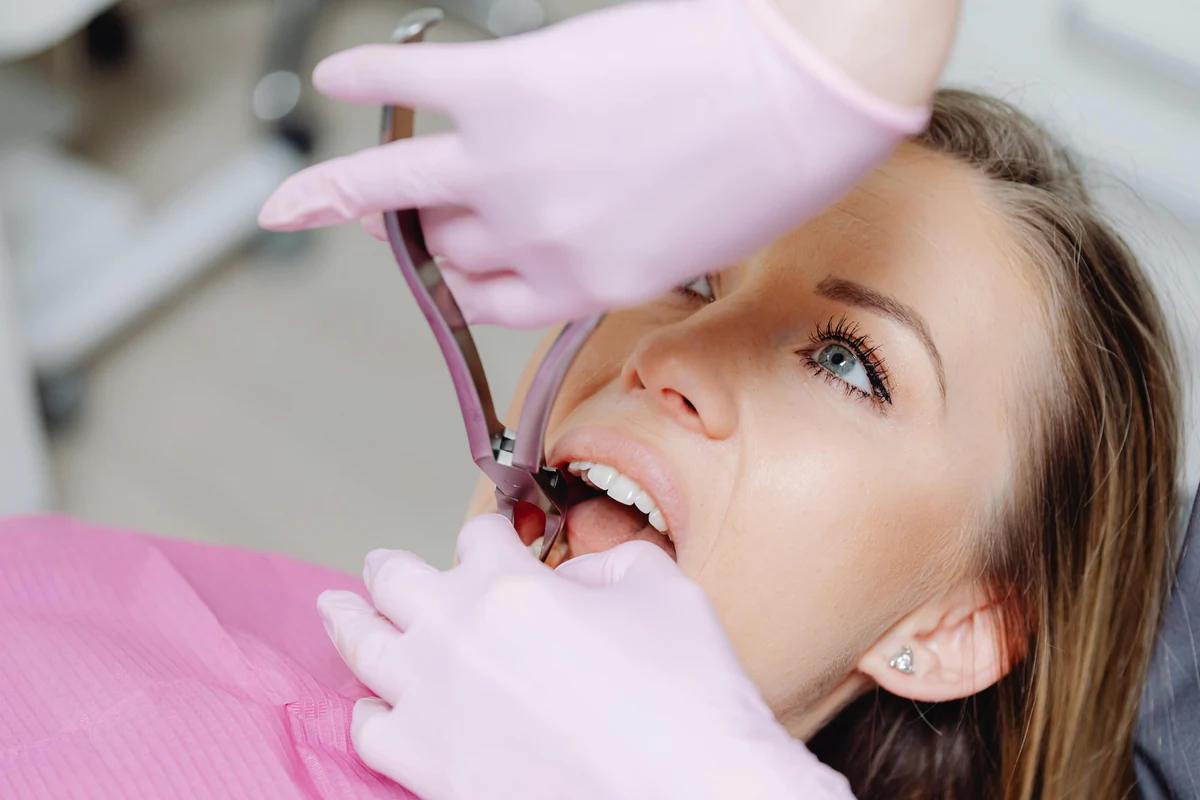Oral Surgery
Wisdom Tooth
Extraction
Surgical procedure to remove one or more wisdom teeth located at the back corners of your mouth

Performed By Specialists
Wisdom tooth extraction may be done by a dentist, periodontist or an oral surgeon.
When Extraction is Needed
You will likely need to have the wisdom tooth pulled if the wisdom tooth does not have room to grow (impacted wisdom tooth), resulting in pain, infection, pericoronitis, "the inflammation of the soft tissues surrounding the crown of the partially erupted tooth including the gingiva (gums)", or other dental problems.
To prevent potential future problems, dentists may recommend wisdom tooth extraction even if impacted teeth aren't currently causing problems.
Why It Is Done
Wisdom teeth or third molars, are the last permanent teeth to appear in the mouth. Wisdom teeth usually appear between the ages of 16 to 25. Some people may never develop wisdom teeth. For others wisdom teeth may erupt normally and cause no problem.
Many people develop impacted wisdom teeth that do not have enough room to erupt into the mouth or develop normally. Impacted wisdom teeth may erupt partially they are called partial bony impacted wisdom teeth, or may not erupt at all and are called full bony impacted wisdom teeth.
Impacted Wisdom Tooth May:
Grow at an angle toward the front or the back of your mouth.
Grow horizontally.
Grow straight up but stay covered with bone.
Grow straight up and stay covered with gum tissue.
Problems with Impacted Wisdom Teeth
You will likely need your impacted wisdom tooth pulled if it results in problems such as:
Pain
Trapping Food
Behind the wisdom tooth
Infection
Or gum disease (periodontal disease)
Pericoronitis
The inflammation of the soft tissues surrounding partially erupted wisdom tooth
Tooth Decay
In a partially erupted wisdom tooth
Damage
To a nearby tooth or surrounding bone
Cyst Development
Around the wisdom tooth
Orthodontic Complications
With treatments to straighten other teeth
Preventing Future Dental Problems
It is difficult to predict the future problems with impacted wisdom teeth however here are the some rationales for preventive extraction:
Symptom free wisdom teeth could still harbor disease.
If not enough space for the tooth to erupt, it's often hard to get to it and clean it.
Serious complications with wisdom teeth extractions happens less often in younger adults.
Older adults may experience difficulty with surgery and complications after surgery.
Risks
Most wisdom teeth extractions do not result in long-term complications however removal of impacted wisdom teeth occasionally requires a surgical approach that involves making incision in the gum tissue and removing the bone surrounding the wisdom tooth. Rarely complications can include:
Painful Dry Socket
Or exposure of bone when the post surgical blood clot is lost from the surgical socket site.
Infection in the Socket
From bacteria or trapped food.
Damage to Nearby Structures
To nearby teeth, nerve, jawbone or sinuses.
After the Procedure
You will be given written instructions what to expect and do to minimize post op discomfort.
Expert Wisdom Tooth Extraction
Schedule a consultation with our dental specialists